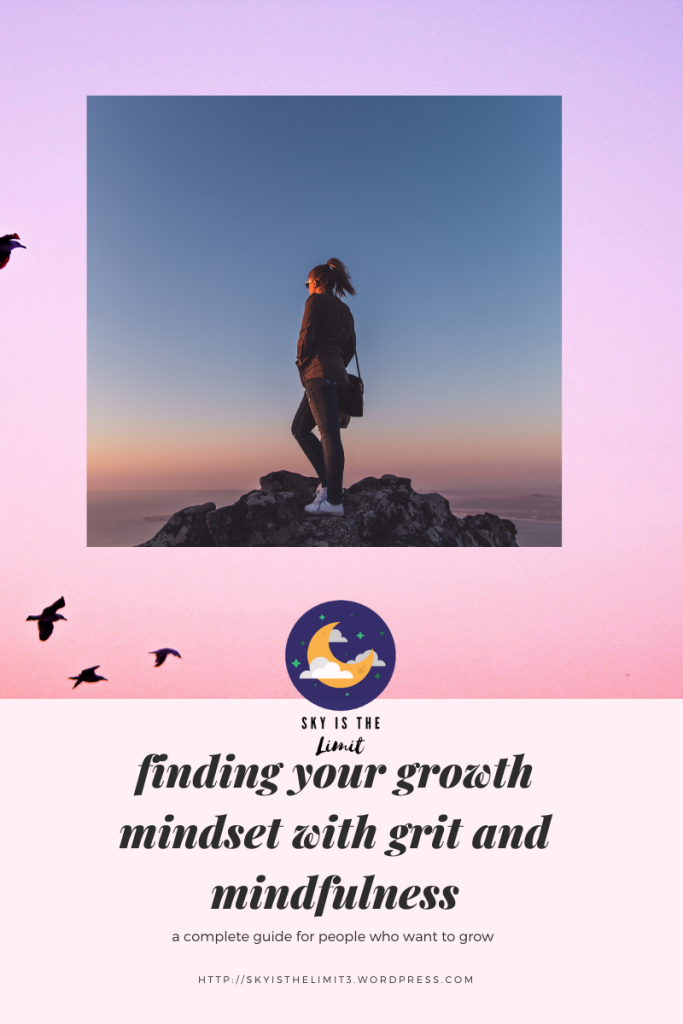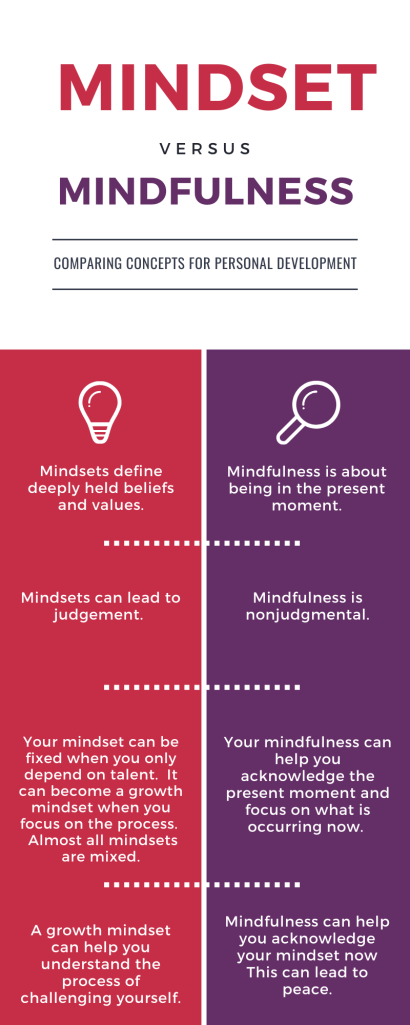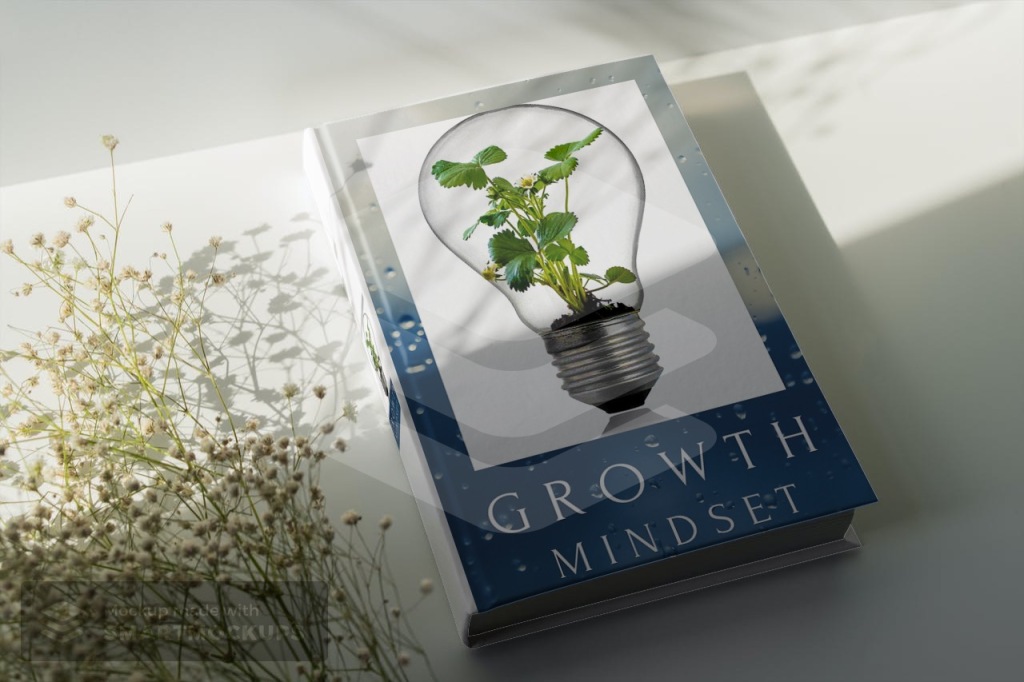
Scrolling down my Instagram feed this morning, I noticed that there is so much speculation over mindset, especially on social media. Influencers and business coaches on Instagram sell online courses on achieving a positive growth mindset and overcoming negative thoughts. On Facebook, there are dedicated groups on the subject to grow your business presence. The posts in these groups are all about manifesting through unlimited positivity. The exact definition of a growth mindset becomes lost in a sea of posts. After my morning tea, I thought about the possibilities of finding your growth mindset with grit and mindfulness.
What is mindset?

According to Stanford University psychologist Carol Dweck, mindset is the view you adopt, which determines how you live your life. It determines how you see the world and make decisions. In other words, it is your perspective or your view of the world. It’s your beliefs about your abilities and qualities that form how you do things or see things. It’s your usual attitude or mental state.
Think about your many strengths and talents. Are you artistic? Are you creative? How you answer these questions defines your mindset and provides clues as to how you view the world and yourself. Your mindset shapes your reality and your perception of what you can do beyond your limits.
A growth mindset is created by believing that your talents can be reached through effort, hard work, and strategies. It is not innate like a fixed mindset, which depends on your gifts. The growth mindset strives to achieve through learning, while the fixed mindset can stagnate.
Let’s be mindful of the matter.
Most influencers have a distorted view of a growth mindset. One of the pitfalls is thinking that our mindset is always in a state of growth. As you encounter new experiences, your mindset develops and evolves. To do so, we need to become aware of our mindset, including failure. Take, for example, the founder of Apple, Steve Jobs. He successfully pioneered telecommunications with the iPhone and grew his company, but he lacked growth in relationships, especially with his daughter.
What is mindfulness?
Almost all mindsets are mixed. Hence, this is where the concept of mindfulness fits in. Mindfulness is a state of awareness in the present moment, when your mind is conscious of your experience. It includes thoughts and feelings, sensations, and breathing. In mindfulness, you accept everything with an attitude of non-resistance and balance. Thus, you can experience everything fully without self-judgment.
With this mindful awareness, you will notice that there are moments in which we fail to reach our goals or compare ourselves to others. Once we recognize our vulnerability, our fixed mindset, then we can nurture it. If we become mindful of our unresolved issues while acknowledging the unsung moments of joy, then we can handle our mixed mindset.
Your mindset is the force behind whether you thrive or avoid challenges, view failures, setbacks, or persevere. It is more about the process than the destination.
Grit
You will also need grit, which refers to a passionate perseverance toward a goal even when overwhelmed with challenges. Mindfulness will make you aware that grit is needed to reach your goal.
These two concepts, grit and mindfulness, are compatible but not exclusive. A new study showed that being aware is correlated with grit in students in individualistic societies, such as ours. Collective societies might not depend on mindfulness. Definitely, more research is needed in this area.
Grit is the tendency to maintain effort and interest towards long-term goals.
Tweet
6 top tips to finding your growth mindset with grit and mindfulness to deal with the following belief system:
- Poor self-image. If you constantly see yourself as a failure, sending self-defeating messages to your mind that you will fail at whatever you try to accomplish. Solution: Turn failures into challenges. Keep a journal describing your thoughts. It will help with problem solving no matter the challenge.
- Self-victimization. If you’ve been a victim of bad experiences or been hurt by others, then you might still be holding onto those moments. Solution: Use mindfulness to let go of the past and live the present.
- Social media envy. If you see the unnatural glamorous lifestyles of other people online then, it might make you feel worse about yourself. You might devalue what you have. You focus on what you don’t have or aren’t doing. Solution: Think about what you do have and show gratitude. Own it up!
- Feel work is a burden. If you dread going to work or complain about doing the work, then change your outlook. Solution: Think about your job as a means of providing value to others and as having an impact on you and others around you. Being able to work gives you the opportunity to contribute to society.
- Obsess about things you can’t control or change. If you complain about what you can’t control then your mind will fill up with everything you don’t like. Solution: Identify how you can change and control your own actions and thoughts to make the experience more positive. Stop complaining and start taking actions that will bring you a greater sense of accomplishment and abundance.
- Lack gratitude for what you have. If you focus on what is wrong with things or the world then it is difficult to learn to let go of the negative. Solution: Focus on identifying the positive things you are grateful for every day.

Failure
If you want to learn more, listen to the top six ways that failure is as important as success in this 2 minute audio podcast:
Free Ebook
By clicking on the link above or on the book cover, you agree to share your email address to receive a free ebook on Growth Mindset . You agree to share your email with the site owner and Mailchimp to receive marketing, updates, and other emails. Use the unsubscribe link in those emails to opt out at any time.

